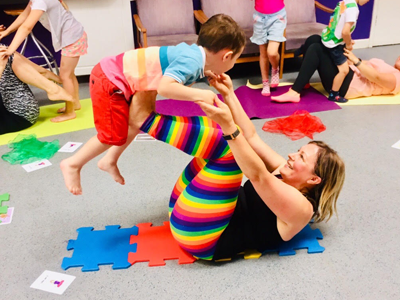For over 15 years now I have been working as a teacher within different settings and phases, from reception to early secondary aged children and with a range of different children who each have their own needs, both in mainstream and special education. I’ve had the pleasure of working alongside some of the most caring people. People I have worked with who wish to provide nothing but the best for the children who we ‘teach’ within our educational settings.
One thing for me that has always stood out since starting my journey within education is the need for children to be given time to understand and form the underlying foundations of what makes them ‘them’. The need to spend time understanding feelings, emotions and thoughts. The need to spend time just being, and not having to rush from place to place, to complete homework tasks that are sometimes not relevant, and actually pretty stressful and an extra pressure that is just not needed.
A question I have often asked myself and my colleagues over the years, much to the annoyance (I suspect) of my head teachers or senior management I’ve worked alongside in teaching, “But, WHY are we doing this?” A question asked not through wanting to be awkward, but to question really the need for some of the things put upon children at such a young age. If you’re reading this and I’ve worked with you in the past you would have heard me say these words about many tests, tasks and un-needed extras thrown into the daily life of a school pupil nowadays.
The requirements and constant demands to perform in tests, homework and shows, to always be the best and beat your scores, research your school project, create the best models, read the most books, be better than your peers in many cases puts such a pressure on our children and young people, that we now see reports of children’s mental health, self esteem and confidence being severely affected.
As I continue to teach part time in a special needs school I felt drawn to do something to address the need to develop opportunities to positively support children’s mental health and wellbeing, both within my school when I can and outside of school in the surrounding community. I needed to address this, so my research began which combined three areas, all of which are known to have a positive impact on the above.
Mindfulness

The British Institute of Mindfulness claims an extensive body of academic research supports the benefits of mindfulness practice for mental performance, emotional wellbeing, physical health and more. Recent developments from the field of neuroscience show that mindfulness practice produces positive changes in the structure and functioning of the brain.
I first came across mindfulness a few years ago now, and have practiced various elements of mindfulness since. I regularly used and still do an app called Headspace, created by Andy Puddicombe. 2019 provided me with an opportunity to develop my mindfulness further as well as my meditation and spiritual development. I attended a meditation and mindfulness 8 week course which was taught by Darren Cockburn, an author and mindfulness expert in my local area and now my good friend. This was the perfect time, as during this course I was able to see how children would hugely benefit from this and it became apparent that I should incorporate mindfulness into what I do. Another good friend of mine, animal communicator Susannah Rafelle (of Self Selection for Animals) had also advised me during an amazing animal communication training course that very same weekend that she saw me teaching children Yoga. I came away from that weekend having already started my forest school journey. Over the next month or so ideas kept coming in thick and fast and, as my jottings in my notebook increased, Forest Yogi Minds was created.
Forest Yogi Minds incorporates all 3 areas below; yoga, mindfulness, with an element of forest schools which is nature based learning.



